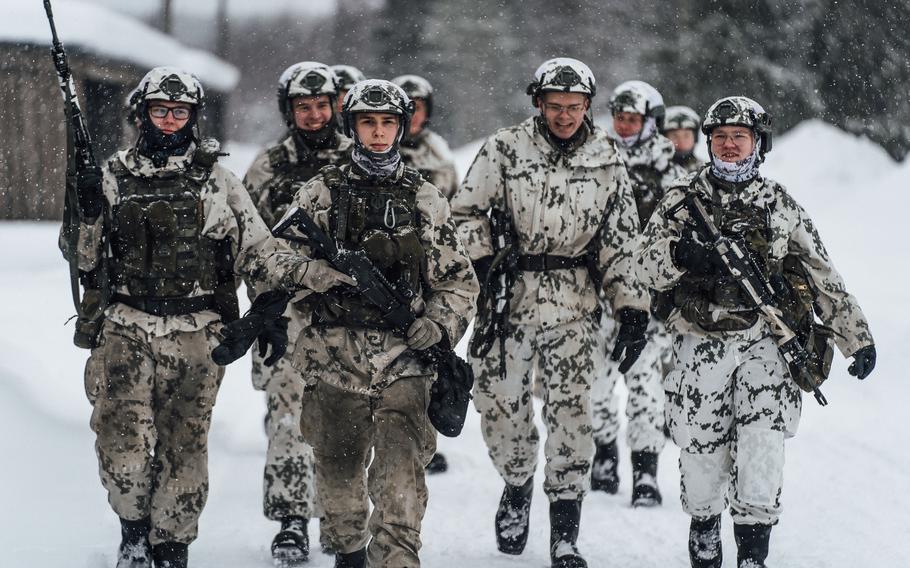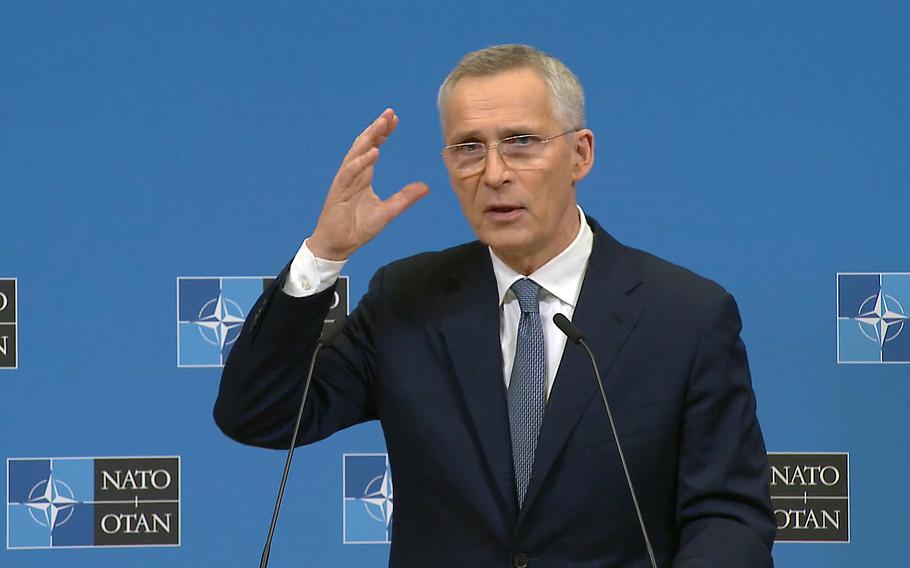
Finnish soldiers switch ranges during weapon familiarization training at Arctic Forge 2023, a U.S. Army Europe and Africa-led exercise, on Sodankyla Garrison, Finland, Feb. 20, 2023. Finland will become the 31st member of NATO on April 4. (James Garvin/U.S. Army)
Finland’s flag will be raised for the first time at NATO headquarters Tuesday in Brussels, where leaders will welcome the Nordic country as the alliance’s newest member.
“It will be a good day for Finland’s security, for Nordic security and for NATO as a whole,” the organization’s secretary-general, Jens Stoltenberg, told reporters on the eve of a meeting of allied foreign ministers.
Finland will be welcomed into the U.S.-led security pact as NATO’s 31st member. The country’s entrance also means that NATO’s border with Russia will more than double, Stoltenberg said.
For NATO, Finnish accession means the addition of a country that never went through the post-Cold War demilitarization that many other European states experienced.
The result is a country with a strong military force equipped with modern weapons systems that will eventually include F-35 fighters, Stoltenberg said.
“They have trained and built a large army over many years,” he said.
Throughout the Cold War, Finland and Sweden, which also is seeking NATO membership, resisted the idea of becoming part of NATO, opting instead for military neutrality. But Russia’s invasion of Ukraine on Feb. 24, 2022, changed the security calculation for both countries.
Sweden’s membership has run into resistance from Turkey, which has blocked Sweden’s entry over what Turkey says are Kurdish militants residing in the Nordic country.
In Brussels, U.S. Secretary of State Antony Blinken will lead a U.S. delegation at NATO that is expected to be focused on ways the alliance can further assist Ukraine in its war against Russia.
“We do not know when this war will end, but when it does, we will need to put in place arrangements so that Ukraine can deter future aggression and history does not repeat itself,” Stoltenberg said. “We cannot allow Russia to continue to chip away at European security.”

NATO Secretary-General Jens Stoltenberg speaks at a press conference in Brussels, April 3, 2023, a day before a meeting of the alliance's foreign ministers, where Finland will become NATOs 31st member. (NATO)
Collectively, allies have delivered some $70 billion in military aid to Ukraine, with modern battle tanks among the latest form of weaponry to arrive on the battlefield.
“This can make a real difference on the front lines and allow the Ukrainian forces to liberate more territory,” Stoltenberg said.
Meanwhile, allies also will address China’s growing alignment with Russia, the NATO chief said.
Pacific region countries including Japan, South Korea and Australia will join the talks in Brussels.
“The consequences of Russia’s war against Ukraine are global, and what is happening in Europe today could happen in east Asia tomorrow,” he said.